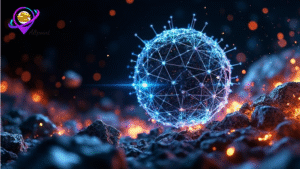It’s not every day you see two fairly different parts of the gaming world decide to team up. But that’s exactly what’s happening with Salvo Games and Last Odyssey. They announced a partnership, and it’s got people talking, maybe because it feels like a genuine attempt to do something a bit different.
The news came through a post on X, formerly Twitter, from Salvo’s official account. It’s a simple announcement, really. They’re excited. The focus seems to be on community growth and getting players more directly involved. It’s less about a big corporate merger and more about linking up two communities.
What This Partnership Actually Means
So what are they actually doing? From what I can gather, it’s about exposure and access. Last Odyssey, which is built on the Ronin Network, is getting a boost in visibility right before its second public test in October. That timing is probably not a coincidence.
For players, it might mean smoother ways to connect. The announcement mentions guiding people into Discord and Telegram channels. That part is pretty standard, but it suggests a focus on keeping players in the loop, making them part of the conversation rather than just an audience.
The AI and Web3 Angle
Let’s be honest, the terms “AI-driven” and “Web3” get thrown around a lot. Sometimes it’s just buzz. In this case, Last Odyssey is described as an AI-powered MMORTS game. That suggests the game might use AI for things like non-player character behavior or perhaps even to shape the world dynamically. It’s a compelling idea, if it works as promised.
The Web3 part ties into Ronin Network, which is known for its connection to play-to-earn games. This partnership with Salvo could help bridge that world with a broader audience. It’s not just about earning; it’s about building a game that feels alive and responsive.
Why It Might Matter for Developers
This isn’t only about players. The partnership seems to be thinking about game creators, too. Salvo Games has a reach within its community, and Last Odyssey is bringing its AI tools to the table. For a smaller developer, getting access to that combination could be a big deal.
It offers a different path. Instead of building everything from zero, a team might leverage these platforms to experiment with AI features or find a dedicated player base on Ronin. It’s a practical approach in a space that can sometimes feel overly theoretical.
Of course, partnerships always look good on paper. The real test will be what players see and feel when that October test rolls around. Will the AI elements feel meaningful? Will the community integration actually work? Those are the questions that will determine if this is just another announcement or something more. For now, it’s a development worth watching.






